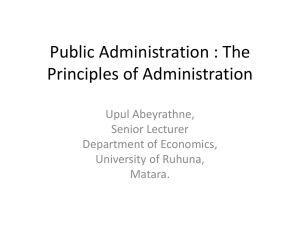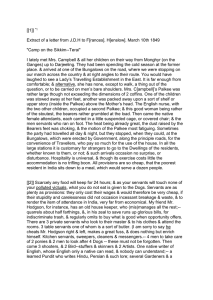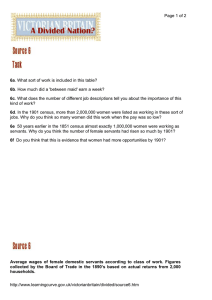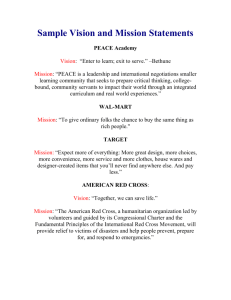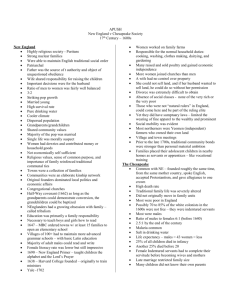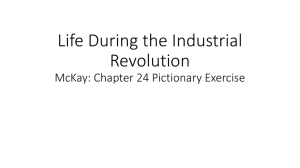French Administrative System: An Overview
advertisement
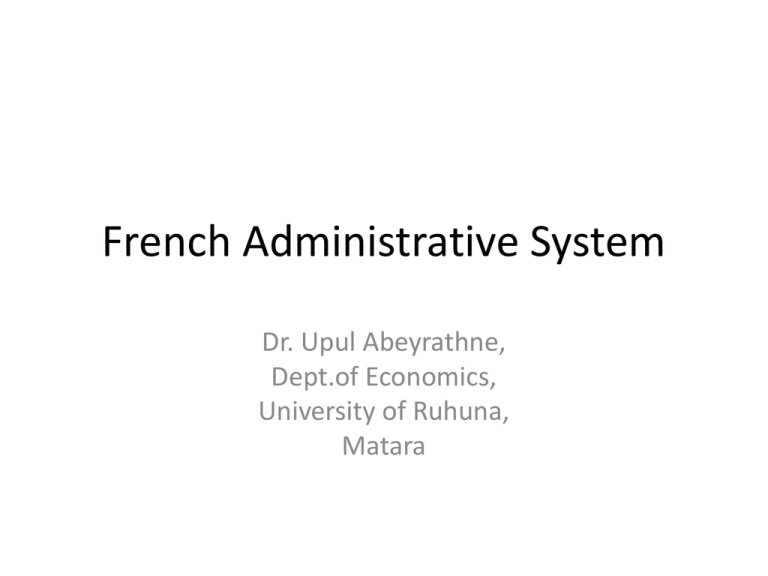
French Administrative System Dr. Upul Abeyrathne, Dept.of Economics, University of Ruhuna, Matara Introduction • The politics of public administration is one of the salient issue in the political debate. • Public administration in France does not raise the question of accountability alone the lines of Weberian assumption as a threat to democratic governance. The concept of state is embedded in the national political culture. • Public administration was thought of as a means of achieving effectiveness as well as democratic values through social modernization and organizational experiments. Public Administration and Social Modernization • Public administration is at the heart of political system due to its economic weight and its role in national polity building since Third Republic. • It has worked as an agent of state power in a long divided nation. • Civil service has depended the state as an impartial and legalistic body against particular and conflictual interest. Main Features of Civil Service • The emphasis on the role of the grands corps in concentraiting technical expertise. This has connected civil servants with top level policy making, social reforms and economic development. • Highly mobile members of Grand Corps(Council d’Etat, Courdes Comptes (Accounting), Inspection Generale des Finances) have controlled the strengthening and uniformity of administrative law. • The role of civil service has proved crucial in modernizing economic structures after the Second World War. • They worked as think tank and social surrogate for political elite who have been severely criticized for their inefficiency. • Public administration has assumed a key role in upward social mobilization. From the time of Third Republic, public administration was regarded a good investment for the poor who are hardworking and young. • The introduction of career system in late 19th century allowed professional merit to gain official recognition. • It is a representative bureaucracy • It is the biggest employee • The administrative law and courts Public Administration • Civil servants are overwhelmingly present at the centre of the state. • 40% of yearly current expenditure is on salaries for public servants. There is a steady increase in the number of civil servants(It rise by 1 million during 1970-80 and reached to 4 million in 1981). This is because socialist party assumed an active role in economy to combat unemployment and implement policies in areas of priority sectors such as education and culture. • Government embraced the Keynesianism upto 1983. • Public Administration was transformed into a Political Problem in 1988 Presidential Election. • Left-Right dichotomy vanished on many issues. Management and administration gained new interests. • However, it should be noted that cost-cutting was not an objective of managerial reform movement in France. Emphasis was shifted from social modernization to effective implementation of government decisions.


![-----Original Message----- From: Roger Hagen [ ]](http://s2.studylib.net/store/data/015586848_1-9f05ba3c445ad07507245fa493f4f9c6-300x300.png)
